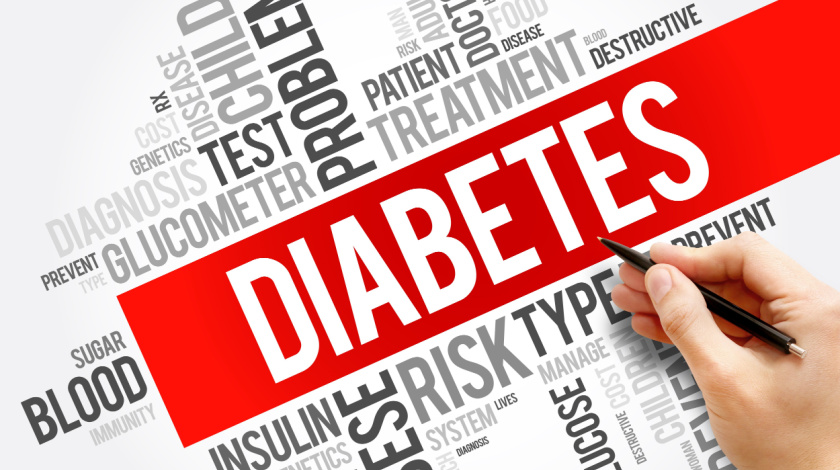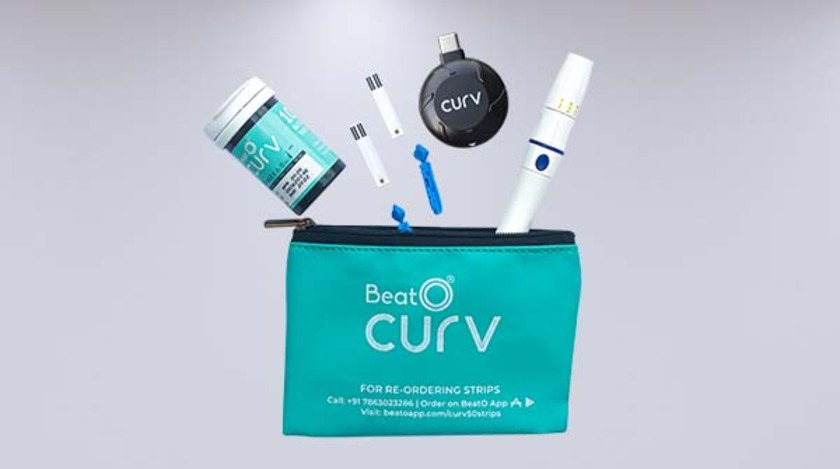Diabetes management is a complex and multifaceted journey. For individuals with diabetes, it’s not just about monitoring blood sugar levels but also understanding and controlling various other health parameters that can impact their well-being. Three key factors that play a pivotal role in diabetes management are A1C, blood pressure, and cholesterol. These three elements, often referred to as the “ABCs” of diabetes care, are instrumental in maintaining good health and preventing complications. In this comprehensive guide, we’ll delve into the importance of A1C, blood pressure, and cholesterol management in diabetes and provide practical insights to help you take control of your health.

A1C: The Glucose Control Gauge
A1C, or glycated haemoglobin, is a fundamental measure of how well your blood sugar has been controlled over the past 2-3 months. It reflects the average blood glucose levels during this period and is expressed as a percentage. Keeping your A1C within a target range is essential for diabetes management.
- The Target Range
The American Diabetes Association (ADA) recommends an A1C target of less than 7% for most adults with diabetes. However, it’s important to note that individualized goals may apply, especially for older adults or those with comorbid conditions. Your healthcare provider will work with you to establish a target range suitable for your specific needs.
- Achieving and Maintaining Target A1C
To maintain a target A1C, consider these practical strategies:
- Regular Blood Sugar Monitoring: Test your blood sugar as advised by your healthcare provider, keeping a record of your readings.
- Medication Adherence: Take prescribed medications as directed. If you’re on insulin, adhere to your dosing regimen.
- Diet and Nutrition: Adopt a well-balanced diet, paying attention to carbohydrate intake, portion sizes, and meal timing.
- Physical Activity: Regular exercise can help regulate blood sugar levels. Consult your healthcare provider for suitable exercise routines.
- Stress Management: Stress can impact blood sugar. Incorporate stress-reduction techniques like meditation and deep breathing into your daily routine.
- Regular Check-Ups: Schedule regular follow-up appointments with your healthcare provider to monitor your progress and adjust your treatment plan if necessary.
- Engage in Diabetes Education: Attend diabetes self-management classes to acquire knowledge and skills for better diabetes control.
Maintaining your A1C within the target range can reduce the risk of diabetes-related complications and enhance your overall well-being.
Blood Pressure: The Silent Menace
Hypertension, or high blood pressure, is common among individuals with diabetes. Uncontrolled high blood pressure can lead to severe complications, including heart disease, stroke, and kidney damage. Therefore, keeping your blood pressure in check is paramount.
- The Target Range
The target blood pressure for most people with diabetes is generally less than 130/80 mm Hg. However, your healthcare provider may adjust this goal based on your individual circumstances.
- Strategies for Managing Blood Pressure
Here are some effective strategies for maintaining healthy blood pressure:
- Medication Compliance: If prescribed blood pressure medication, take it as directed by your healthcare provider.
- Healthy Diet: Adopt a diet rich in fruits, vegetables, whole grains, and lean proteins while limiting sodium intake.
- Physical Activity: Regular exercise helps lower blood pressure. Aim for at least 150 minutes of moderate-intensity exercise per week.
- Moderate Alcohol Consumption: Limit alcohol consumption to moderate levels or as recommended by your healthcare provider.
- Weight Management: Achieving and maintaining a healthy weight can significantly impact blood pressure.
- Stress Reduction: Manage stress through relaxation techniques and mindfulness.
- Monitor at Home: Invest in a home blood pressure monitor and track your blood pressure regularly.
Remember that uncontrolled blood pressure can silently damage your organs over time, so regular monitoring and management are crucial.
Cholesterol: The Heart Health Guardian
Cholesterol is a fatty substance in the blood necessary for the body but can be detrimental when levels are too high. High cholesterol levels increase the risk of heart disease, which is a major concern for individuals with diabetes.
- The Target Range
For most individuals with diabetes, the target levels for cholesterol are as follows:
- LDL Cholesterol (Low-Density Lipoprotein): Less than 100 mg/dL
- HDL Cholesterol (High-Density Lipoprotein): Greater than 40 mg/dL for men and 50 mg/dL for women
- Triglycerides: Less than 150 mg/dL
These values are crucial in reducing the risk of heart disease associated with diabetes.
- Strategies for Managing Cholesterol
Here are some strategies to help you manage your cholesterol effectively:
- Dietary Modifications: Consume a heart-healthy diet low in saturated and trans fats. Focus on foods like oats, nuts, fish, and olive oil.
- Medications: Your healthcare provider may prescribe cholesterol-lowering medications when lifestyle changes are insufficient.
- Physical Activity: Regular exercise can raise HDL (good) cholesterol and lower triglycerides.
- Weight Control: Maintaining a healthy weight is essential for managing cholesterol levels.
- Smoking Cessation: Quitting smoking can improve cholesterol levels and reduce heart disease risk.
- Limit Alcohol: Consume alcohol in moderation or as advised by your healthcare provider.
- Regular Cholesterol Testing: Follow your healthcare provider’s recommendations for cholesterol testing.
Cholesterol management is integral to heart health, and its control is vital for individuals with diabetes.
- The Synergy of ABCs
A1C, blood pressure, and cholesterol levels are interconnected, working together to affect your overall health. When managed collectively, these factors create a harmonious synergy in diabetes management.
- The Domino Effect
Uncontrolled blood sugar can damage blood vessels, increasing the risk of high blood pressure. Likewise, high blood pressure can result in heart disease and negatively impact cholesterol levels. Therefore, managing all three components is essential to break this chain reaction.
- Collaborative Care
Your healthcare provider plays a central role in managing A1C, blood pressure, and cholesterol. Regular check-ups, discussions about your progress, and appropriate adjustments to your treatment plan are vital components of this collaboration.
- Lifestyle Adjustments
Making lifestyle changes is often the first line of defense in managing the ABCs. These changes include dietary modifications, exercise, and stress management. Consulting a registered dietitian and a certified diabetes educator can provide valuable insights into these adjustments.
- Medications
In some cases, medications may be necessary to achieve target levels for A1C, blood pressure, and cholesterol. Your healthcare provider will determine when medications are needed and monitor their effectiveness.
- Monitoring and Tracking
Effective diabetes management requires vigilant monitoring and tracking. Here are some valuable tips to help you stay on top of the ABCs:
- Record-Keeping: Maintain a comprehensive record of your blood sugar readings, blood pressure measurements, and cholesterol levels. Use a notebook or a digital app to track your progress.
- Regular Check-Ups: Schedule regular appointments with your healthcare provider. These visits are an opportunity to discuss your ABCs and make necessary adjustments to your treatment plan.
- Home Monitoring: Invest in-home monitoring devices such as a glucometer, blood pressure monitor, and cholesterol testing kits. Regular at-home monitoring empowers you to actively manage your health.
- Educate Yourself: Stay informed about the latest guidelines and recommendations for diabetes management. The more you know, the better equipped you are to make informed decisions about your health.
The Importance of Support
Managing the ABCs of diabetes can be challenging, but you don’t have to do it alone. Seek support from various sources:
- Healthcare Team: Your healthcare provider, along with diabetes educators and dietitians, can provide expert guidance.
- Support Groups: Joining a diabetes support group can offer emotional support and practical insights from others facing similar challenges.
- Family and Friends: Share your diabetes journey with loved ones, helping them understand your needs and providing invaluable support.
- Self-Care: Make self-care a priority, including relaxation techniques, stress management, and a focus on mental health.
Read More: Glucometers: Transforming Fear into Confidence for Diabetes Management
Managing diabetes effectively involves addressing the ABCs: A1C, blood pressure, and cholesterol. These three key components are essential for preventing complications and ensuring a healthy and fulfilling life with diabetes. By adopting a proactive approach, working closely with your healthcare provider, and making necessary lifestyle adjustments, you can take control of your health and enjoy a brighter, healthier future. Remember, knowledge and empowerment are your best allies in the journey of diabetes management.
Throw out your non-verified glucometer and try the BeatO clinically approved smartglucometerkit. Check your blood sugar level instantly. Try out the BeatO diabetes care programfor a more organized healthcare routine.
Looking for a seasoned diabetologist? ChooseDr. Navneet Agarwal, an expert with 25+ years of experience. His specialisation in diabetology and obesity management provides personalised care. Elevate your health with a doctor’s recommendedglucometer, buy now.




